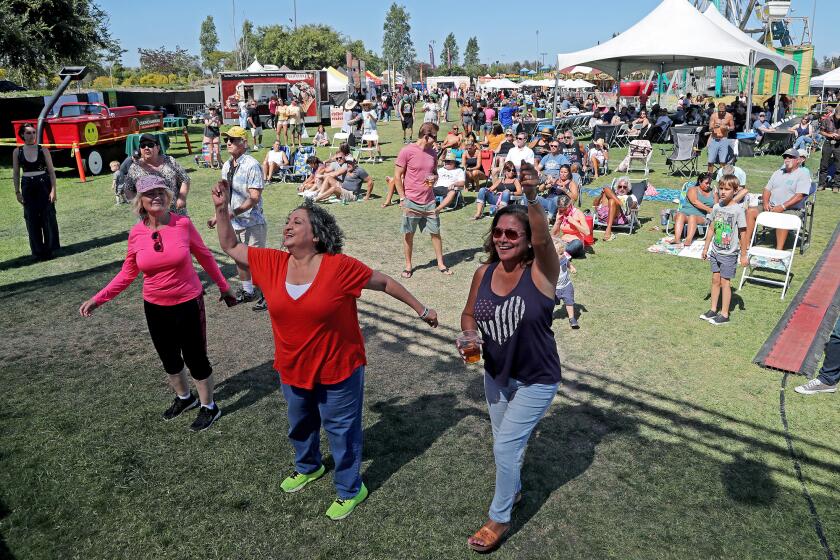Motion for retrial denied for woman convicted of killing 3 Las Vegas teens in Huntington Beach crash
- Share via
Just over a week after Bani Duarte was convicted in October of murder and driving under the influence in a crash that killed three Las Vegas teenagers in Huntington Beach, one of the jurors mailed a letter to the court describing the juror’s experience in the deliberation room, according to court documents.
“I sat there and couldn’t believe that this is the way that it was going,” the juror wrote.
Duarte’s lawyer, public defender Justin Glenn, argued that the letter should have been grounds for a new trial.
But on Friday morning, Orange County Superior Court Judge Gary Paer denied Duarte’s request, paving the way for sentencing Feb. 27. Duarte, 29, could face 51 years to life in state prison, according to prosecutors.
“There was no jury misconduct; it was just a letter about [the juror’s] experience,” Paer said. “Never at any time is there any mention or inference of getting bullied, forced, intimated, coerced. If anything, [the juror] was an active participant in the jury deliberations.”
Duarte, of San Clemente, was convicted Oct. 1 of three counts of second-degree murder and one count of driving under the influence causing great bodily injury. The decision was reached after barely an hour of deliberations.
Duarte, driving a Hyundai Sonata north on Pacific Coast Highway around 1 a.m. March 29, 2018, rear-ended a Toyota Corolla containing four teenagers from Las Vegas who were visiting Huntington Beach for spring break. The crash forced the Toyota into a pole at the corner of PCH and Magnolia Street, where it burst into flames, authorities said.
Brooke Hawley, 17, Dylan Mack, 18, and A.J. Rossi, 17, were killed. A fourth occupant, Alexis Vargas, was severely injured.
More than an hour after the crash, Duarte had a blood-alcohol level of 0.28%, more than three times the legal limit, according to evidence presented in court and a Huntington Beach Police Department document attached to an arrest warrant.
The juror’s letter, in which the writer’s identity is redacted, details how the juror became the last one holding out on conviction.
Once the jury gathered in the deliberation room after “a truly exhausting day” of closing statements, most of the other jurors agreed that Duarte was guilty, the juror wrote. The juror challenged the others not to base their decisions on emotions but to determine whether the evidence warranted conviction.
The juror started writing elements of the case on a board for discussion. According to the letter, “everyone was raising their hand” in agreement with the factors needed to convict Duarte of murder.
“What was wrong with me?? I knew I listened, but maybe I missed something important. How could I be the only one holding out?” the juror wrote.
After re-reading the jury instructions and the elements needed for conviction, the juror was swayed “a little bit,” the letter said.
“After what seemed a long time for me, I raised my hand,” the juror wrote. “I raised it because I felt like I missed something. I felt wrong about the whole thing.”
The juror said the reason for writing the letter was “to get this off of my conscience.”
Glenn referenced a motion he filed in January, which also was denied, to unseal the juror’s identifying information.
“We feel as though we should have the juror here so that she could have expounded upon what was in the letter,” Glenn said.
In denying Glenn’s motion for a new trial, Paer said he had done an independent review of the evidence and “there was sufficient evidence to support the murder convictions.”
As the judge explained his decision, Duarte sat quietly beside her lawyer. A person sitting behind her in the courtroom wept silently.
All the latest on Orange County from Orange County.
Get our free TimesOC newsletter.
You may occasionally receive promotional content from the Daily Pilot.




